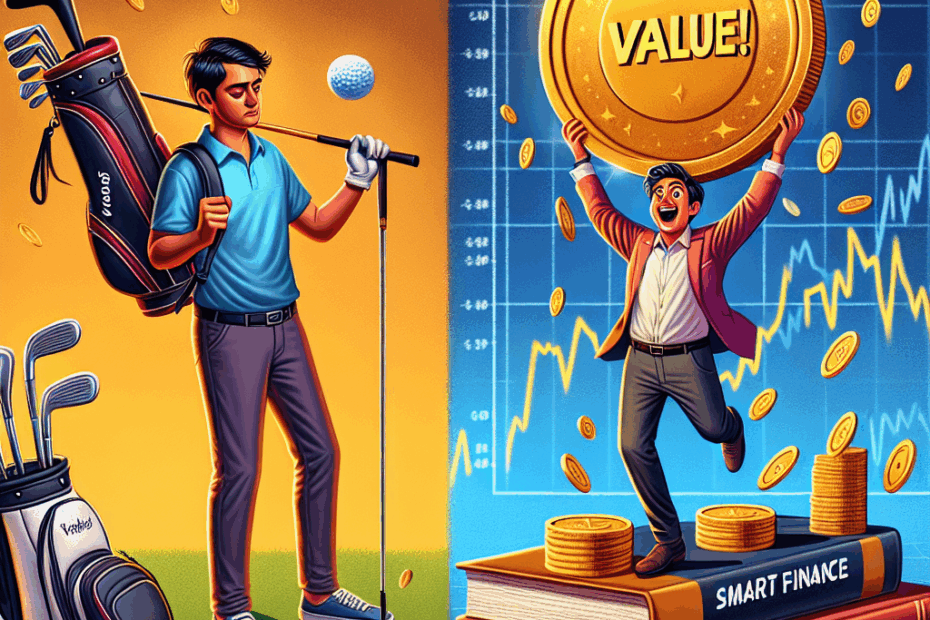“`html
Welcome, Everyone! Let’s Talk About Saving Money Wisely
Hey folks, John here! Today, we’re diving into a fun topic: things we can avoid spending money on. It’s all about being smart with our cash and focusing on what truly matters. I saw a great article about this, and I wanted to break it down in a super simple way. It’s like deciding what snacks to buy at the grocery store – do you really *need* that extra bag of chips?
Saying “No” to Golf?
The original article starts with golf! The author mentions they’re not a golfer. Now, this isn’t about bashing golf. It’s more about recognizing that certain hobbies or activities just aren’t for everyone, and that’s perfectly okay. We don’t all need to follow the same path. It’s also a way of illustrating how some potentially expensive pastimes might be worth reconsidering depending on your goals.
Lila: John, why is this even important? Isn’t it okay to spend money on hobbies?
Great question, Lila! Absolutely, it’s important to enjoy life and spend money on things that make you happy. But it’s also about being mindful. If a hobby is costing you a fortune and not bringing you genuine joy, it might be time to re-evaluate. It’s like having a leaky faucet – a little drip might not seem like much, but over time, it can waste a lot of water (and money!).
Brand New Cars: Are They Really Worth It?
One thing the author touched on is buying brand new cars. Now, who doesn’t love that new car smell? But brand new cars lose a big chunk of their value as soon as you drive them off the lot. It’s like buying a cake, taking one slice, and then trying to sell the rest for the original price – it’s just not going to happen!
A smarter move might be to buy a slightly used car. You get a reliable vehicle without taking that initial depreciation hit (that’s the fancy word for losing value quickly). It’s like buying a book that’s already been read once – it’s still the same great story, but you’re paying less for it.
Fancy Coffee: A Daily Drain?
Let’s talk about coffee. That daily latte from a fancy coffee shop might seem like a small expense, but it adds up over time. It’s like a tiny tax you pay every single day!
Lila: Okay, John, but I *need* my latte! How else am I supposed to wake up?
I understand, Lila! Coffee can be a lifesaver. But think about alternatives. Could you make coffee at home? A simple coffee maker is much cheaper in the long run. Or maybe try a regular coffee instead of a super-fancy one. Small changes can make a big difference. It’s like choosing to take the stairs instead of the elevator – a little effort each day adds up to better health and more money saved!
Impulse Purchases: The Enemy of Your Wallet
The article also subtly implies that avoiding impulse purchases is key. We’ve all been there – you’re at the store for milk and eggs, and suddenly you’re walking out with a new gadget you didn’t even know you wanted. These impulse buys can really derail your budget. It’s like going to the gym with a plan and then getting distracted by the TV – you end up wasting your time and not reaching your goals.
- Make a list: Before you go shopping, make a list and stick to it.
- Wait 24 hours: If you see something you want, wait 24 hours before buying it. You might find you don’t really need it.
- Ask yourself: “Is this a need or a want?”
Prioritizing Experiences Over Things
Something else to consider is focusing on experiences rather than material possessions. A new gadget might be fun for a week, but a memorable trip or a concert with friends can create lasting memories. It’s like comparing a fleeting sugar rush to the sustained energy of a healthy meal.
Lila: So, should I never buy anything new?
Not at all, Lila! It’s about finding a balance. It’s perfectly fine to buy things you need and enjoy. But try to be mindful of your spending and prioritize experiences that bring you joy and enrich your life. Think of it like investing – you want to put your money where it will grow and provide long-term value, whether that’s in financial assets or in personal fulfillment.
John’s Final Thoughts
Ultimately, being smart with your money is about making conscious choices. It’s about aligning your spending with your values and goals. It is interesting how a little bit of self reflection can help you save quite a lot of money in the long run. It’s not about deprivation; it’s about living a richer, more fulfilling life.
Lila’s perspective: I’m starting to see that saving money isn’t just about being cheap. It’s about being thoughtful and making smart choices so I can enjoy the things that really matter!
This article is based on the following original source, summarized from the author’s perspective:
Some Things I’ll Never Spend Money On
“`
